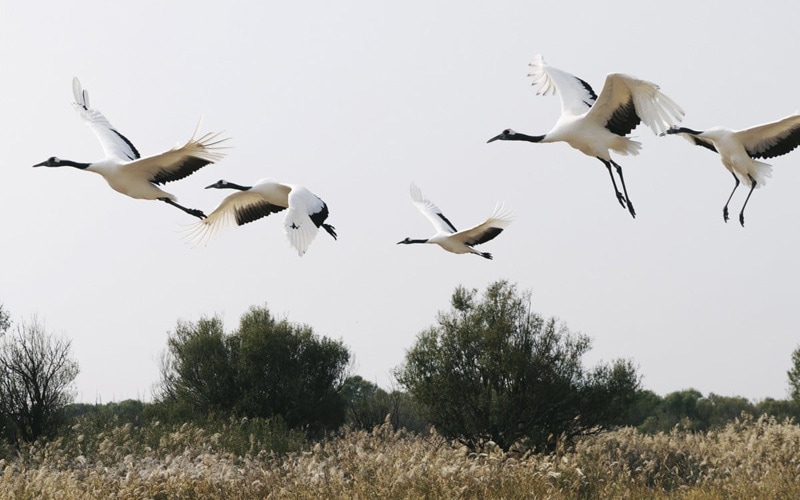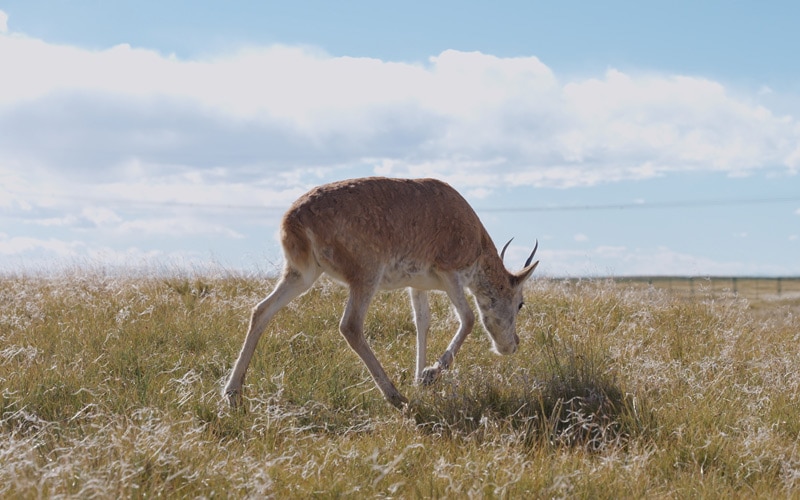Saving the Palawan Rainforest by Listening
Maintaining nature's balance
Known for its beauty and promise of adventure for tourists across the globe, Palawan is a long, narrow island in the southwest Philippines that's home to a rich array of flora, fauna, and marine life.
Accounting for the bulk of the nation's forest cover, the Palawan rainforest is considered to be the last ecological frontier in the archipelago nation. It not only plays a crucial role in maintaining the ecological balance of the entire region, it also ensures that local people have sufficient clean drinking water and is pivotal in preventing landslides. As one of the world's 35 biodiversity hotspots, the rainforest is home to various rare species, including the Philippine forest turtle, which the International Union for Conservation of Nature (IUCN) lists as a critically endangered species, and binturongs, a vulnerable species famed for a distinctive odor that's similar to hot buttered popcorn.
With the continued encroachment of agricultural and residential land, prevalence of commercial and illegal logging, and frequent forest fires, Palawan loses about 5,500 hectares of rainforest every year – the equivalent of 7,700 football pitches. Moreover, forest rangers patrolling the rainforest face extreme danger due to illegal loggers carrying weapons – it's estimated that from 2001 to 2019, the death of 18 rangers can be attributed to illegal loggers.

Palawan

Binturong, listed as vulnerable species by IUCN
A protective partnership
The good news for the Philippines is that a technology-driven protection project for the rainforest has been initiated by the Department of Environment and Natural Resources (DENR), PLDT's wireless and mobile operator Smart Communications, Rainforest Connection (RFCx), and Huawei.

A new monitoring system comprising mobile devices and AI powered by Huawei Cloud has been deployed to prevent illegal logging and animal poaching in five protected areas across Palawan: Cadlao Island, Maranlao and Pasadena in El Nido, and New Guinlo and Pancol in Taytay.
Powered by solar panels, this Rainforest Guardian system comprises old cell phones that monitor and record sounds of human activity, like chainsaws and vehicles, and capture data on animal behavior patterns. Identified by AI, forest sounds and data are uploaded to cloud on the Smart Communications'network and then sent to forest rangers via RFCx's mobile app. DENR forest rangers receive real-time alerts of sounds from chainsaws, trucks, and other indicators of forest destruction, so that they can take action quickly.
"The dedication of the local DENR forest rangers in Palawan is known worldwide. They spare no efforts in protecting this last frontier of Filipino wilderness from logging and environmental threats, and face enormous challenges and great danger. Huawei and Smart Communications teamed up to give RFCx an opportunity to help these brave people." said CEO of Rainforest Connection (RFCx) Topher White.
As RFCx's first Filipino telco partner, Smart Communications covers the five pilot sites in Palawan with wireless connectivity. Results have been promising since the rollout of the Forest Guardian system in January 2020, with DENR reporting that several alerts of illegal logging have been verified and addressed by forest rangers.
"The DENR welcomes this collaboration between the government and the private sector to help protect the country's forest cover. This supports DENR Secretary Roy Cimatu's resolve to level up the enforcement mandate and capability of DENR by employing technology to complement our current systems. I look forward to the success of this project and to replicating it in other areas that face a similar situation as the Province of Palawan." said Nilo Tamoria, Executive Director of the DENR Environmental Protection and Enforcement Task Force.


At Smart, we are championing eco-efficiency through various programs that reduce the impact of our operations, people & products on the environment. On top of that, we have always been at the forefront in using technology to support meaningful initiatives that protect our forests to curb the devastating effects of climate change,” said Alfredo S. Panilio, President and CEO of Smart Communications and Chief Revenue Officer of PLDT.
Huawei believes that the Forest Guardian system can be quickly and easily adapted to more countries and more scenarios. It expects that in 2020, the system will more than double the amount of forest it covers from 2,500 km2 to 6,000 km2. RFCx estimates that the amount of forest protected by the system will boost CO2 absorption by 30 million tons, which is the equivalent of taking 6 million cars off the road. RFCx and Huawei will also continue to optimize the sound monitoring platform in 2020 by adding web and mobile interfaces and developing an API for aggregating sound data from various sources. This will help AI learning models capture and analyze audio on a much greater scale, so the solution can better monitor the health of the ecosystem and more effectively protect endangered species and their habitats.






